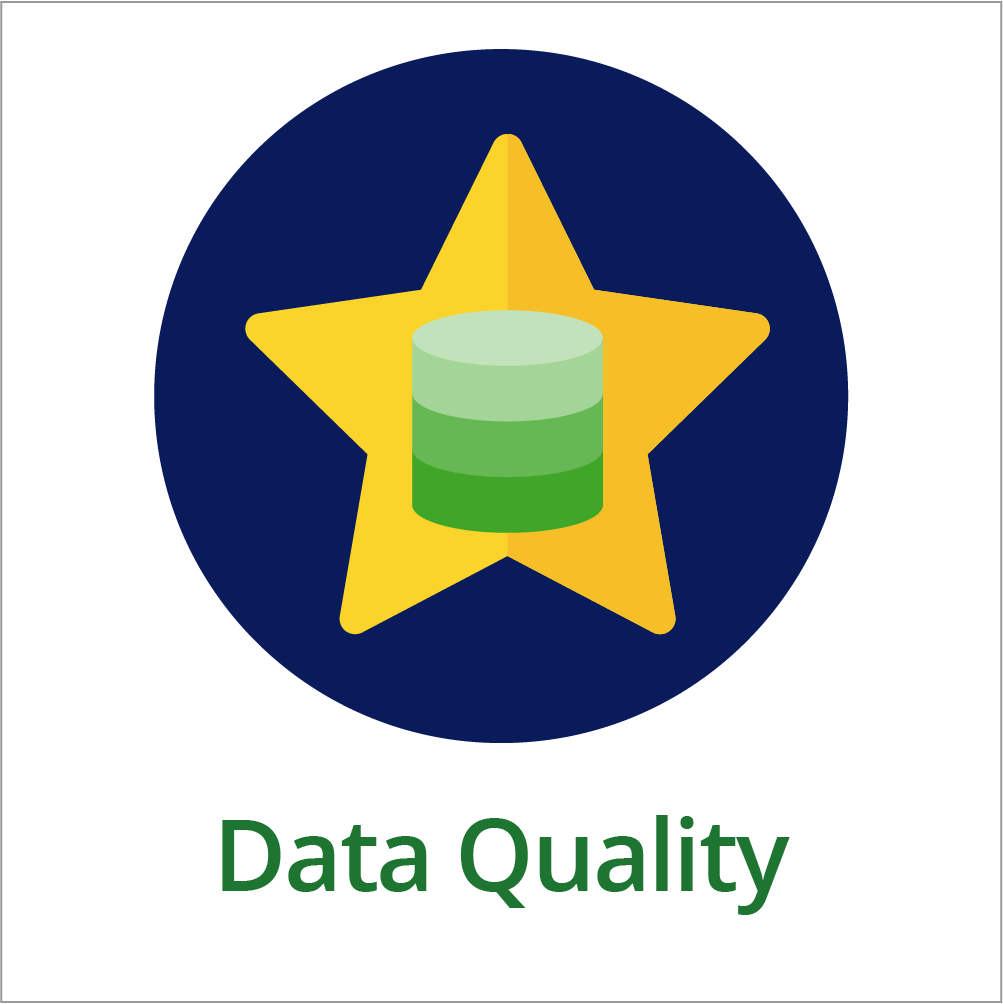
Data quality refers to the overall utility of a dataset as a function of its ability to be easily processed and analyzed for other uses. Data governance policies that address data quality must clearly communicate expectations for how data are to be collected, entered, prepared, analyzed, and reported. To be effective, data quality policies should specify responsibilities for specific data quality actions, the processes associated with these actions including timelines, and how the data system contributes to data quality. This section contains topical information, a packet with a considerations worksheet and a policy template, and an option to request technical assistance.
Part C and Part B 619 programs rely on data to inform decisions on program improvement, track child and family progress, and report performance to federal, state, and local policymakers and other stakeholders. Using inaccurate or poor-quality data to report on program performance or make decisions will result in erroneous conclusions. Therefore, comprehensive policies and procedures are necessary to ensure high-quality data that are accurate, consistent, timely, and complete.
The importance of data quality is addressed by the U.S. Department of Education’s Implementing Regulations for Part C programs as follows: “Each statewide system must include a system for compiling and reporting timely and accurate data…” (34 CFR 303.124(a)). In addition, Part C regulations at 303.723 require the lead agency to submit a certification, signed by an authorized official of the agency, that the information provided, “is an accurate and unduplicated count of infants and toddlers with disabilities receiving early intervention services.” These regulations require that data quality be a high priority for Part C and Part B 619 programs.
A comprehensive approach to data quality involves the intersection of people, processes, and data system(s).
- People (roles/responsibilities): Individuals at the state or local level who collect, enter, prepare, analyze, report, and/or access data are responsible for ensuring that the data are and remain of high quality. Policies should communicate role expectations, outline data quality monitoring responsibilities, and prepare for transfer of knowledge when there is staff turnover. Data governance policies for data quality must include training and professional development opportunities for anyone who collects, maintains, or uses Part C or Part B 619 data.
- Processes: Part C and Part B 619 programs need to have clearly documented and consistently applied processes and procedures to support data quality through summarizing, analyzing, and reporting of data. Data quality processes should include regularly updated documentation (e.g., data entry manuals, data dictionaries, tip sheets); continuous data quality monitoring and checks/audits; and procedures for correcting data quality issues when discovered.
- Data system(s): Data systems used by Part C or Part B 619 programs should have the capability to perform automated edit checks, such as having predefined option sets or acceptable response ranges, to reduce data entry errors. That is, when a person is entering data, the data system automatically identifies data entry values that are questionable so they can be confirmed or corrected as soon as possible. The system should generate reports at all levels (child record, provider, agency, etc.) to help identify potential data errors.
Published February 2021.

